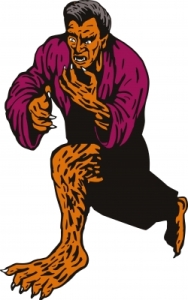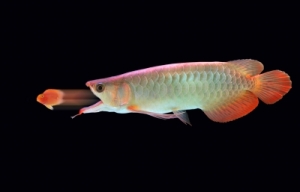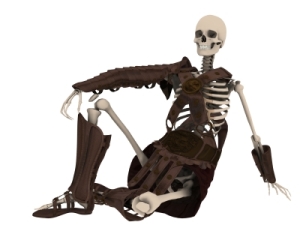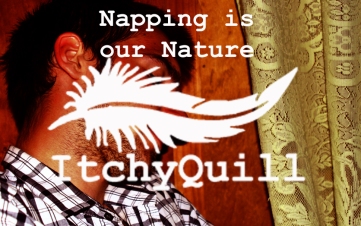
Do you remember your first job? I worked in a fish and chip shop in Southern England. I was 14 years old, and my responsibilities consisted of peeling potatoes, chipping them and then blanching them ready to be deep fried by the owner Mr Fukiyama later. He was a Japanese immigrant who had lived in the UK and owned his fish and chip shop for nearly twenty years. I have never tasted fish and chips as good as he made them since.
I worked six days a week, 1.5 hours Monday to Friday, then 2 hours on Saturday morning; they were the cruellest. I would be so tired, dragging myself out of bed at the crack of dawn to make sure there was someone there with the owner to collect the fish delivery that would be shipped fresh in a freezer van from the South Coast.
There was one particular morning where I was particularly tired; shattered in fact, probably from some tryst the night before. Mr Fukiyama informed me he was going to the wholesalers and would be back in an hour. As I heard the door click behind him, and the lock catch, I ducked under a pile of potato bags and began to nap.
I woke no more than ten minutes later to a rather red faced Mr Fukiyama standing over me. He stared down and asked “why are you asleep?”
Not sure what to say, I lied through the tiredness in my lips.
“I’m sorry sir, I’m just so tired from all my school work.”
He looked down at me and smiled.
“In Japan it is seen as a sign of hard work to sleep on the job. For this reason, I will let you off this time,” he said, and then he walked away chuckling to himself.
That’s right. In Japan there is something called Inemuri, which is essentially ‘sleeping while present’. It is the practice of sleeping on the job, demonstrating to your boss that you are working so hard that you haven’t had time to sleep at home. In fact, it is so desirable to do this, some people actually fake Inemuri! People are faking taking naps! Can you Adam and Eve it!?
It raises a good point though. With such a fast paced world, we rarely get a chance to take the time we need to really rest. For those that need reminding, or for those that just need justification, we’ve got you covered! Here are some of the best reasons to take a nap!

Kids though, kids are just lazy
It’s in our nature!
Cats are great, aren’t they? Little bundles of fluffy joy, always there to cuddle up and keep you warm and comforted. But they are kind of… lazy, aren’t they? I mean, they don’t really do anything, do they? You feed them, you buy them nice things, you keep them groomed and a roof over their head. They just, kind of, sleep really. In fact cats sleep, on average, for 70% of their lives!
The scientific reason is cats, like many animals, have a polyphasic sleep pattern, which basically means they have different periods of being awake and sleeping throughout a 24 hour cycle. In fact, it’s estimated that around 85% of animals sleep in this way! We are in the minority as monophasic sleepers now, but it is assumed humans would once have had a similar sleeping pattern in times of cavemen so that there would always be someone awake to watch for predators.
Recent studies have shown that the most useful sleep pattern for the modern human would be a biphasic sleep cycle, with a longer sleep at night and a shorter one during the day. This was once popular in countries such as Spain, and finds its origins in Ancient Rome.
So by not napping, you are essentially fighting against nature. Do you hate nature?
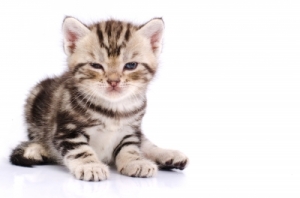
sleeeeeepppyyyyy
Productivity
This seems like a no-brainer to some, but napping actually helps to improve your productivity. That said, there are still those that view sleeping on the job as a sign of laziness. You don’t have to take our word for it though. Arianna Huffington, President of The Huffington Post, is a vocal advocate of work based naps, and even went as far as installing two nap rooms in the Huffpost offices! Employees sign up in advance, and the rooms are always full.
Her justification was simple; “Ultimately, at work, the most important thing is our energy. It’s not exactly how many hours we are sitting at our desks, but how present are we when we’re there.” Arianna Huffington, Business Insider.
In fact, there are studies that show that sleeping in the middle of the day increases productivity in the second half of the day to levels similar to those seen in the first half. You are essentially hitting reset.
As the old saying goes; work smart, not harder. Napping at work is a healthy step toward that goal.

“So Sheila, we need to improve productivity this quarter. How about a nap… later… after dinner… at my house…naked”
It improves your men…mom…mam… I’m sure I know this
One of the greatest advantages of sleep is it aids the brain in turning short-term memories into long-term ones. This is due to the fact that during sleep, the brain is much better at avoiding distractions that have the potential to corrupt a memory. When a memory is new it is often stored in the hippocampus, and during wakefulness this can leave the memories fragile and vulnerable. By napping during your learning, you are effectively giving your brain more of a chance to download these memories into it’s hard drive (the neocortex) and make them permanent. Distraction kills memories.
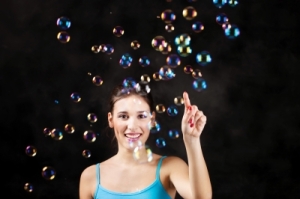
Ooooh, bubbles!
Red Alert
NASA has spent a great deal of time looking into sleep. It is not unusual for astronauts to sleep 0.5 to 2.5 hours less in space than they do on Earth, due to many factors such as environment, physical stress and a jumbled circadian rhythm. To compensate for this loss of sleep, NASA has spent a lot of time and energy researching the benefits of napping.
In tests they performed on sleepy military pilots, it was shown that after a 20-30 minute kip their performance increased by 34% and their alertness by 100%. When you are hurtling through space in a rocket, alertness is kind of a big deal.

‘Derik, let go, it’s my turn!’
Good Mood Dude
There is a little neurotransmitter called Serotonin that helps our bodies regulate our appetites, sleep and mood. Having a good amount of it is what gives you a feeling of peace and happiness. A lack of sleep, and its associated problems, can lead to blocking of our bodies serotonin, and therefore our ability to regulate our mood. This can lead to irritability, anxiety, stress and depression. According to Dr Mednik, a leading expert on naps (read, napologist), napping “bathes your brain in serotonin, reversing those effects and creating a more positive outlook”. You’ll be happier, which will rub off on those around you until the world is one, giant, happy ball of joyful happiness.

“Freeze Frame”
You Won’t Be Alone
Napping is nothing new, and there have been many famous people who have been staunch advocates of napping; Winston Churchill, Thomas Edison, Napoleon Bonaparte, and John F. Kennedy to name but a few.
In fact, some have even claimed that certain napping rituals are in fact partly responsible for what makes them great. Savador Dali was a big fan of the ‘napping with a key‘ technique. Essentially, you fall asleep with a key in your hand, which is attached by a string to a plate. As your hand relaxes, you drop the key which crashes the plate into the floor and you wake up. This is supposed to increase creativity, and has in fact got some backing from scientists, who call it a hypnogogic nap. It works by waking you before you reach stage 2 sleep, unlocking your creative thoughts that would have otherwise aided dreaming. Dali claimed he learned it from Capuchin monks, and that it was popular among other painters of his generation. Einstein and Aristotle, among others, were also a fans of this kind of napping.

Team napping is scientifically proven to be twice as effective (citation needed)
It’s Good for Your Health!
Napping has been linked with helping to reduce your risk of heart attack, stroke, irregular heartbeat, high blood pressure, and other cardiovascular problems, according to Dr Mednik.
There are also studies that show you burn more calories sleeping than you do watching TV!
It’s not just what it does do, but what it doesn’t do too. Good rest suppresses the production of cortisol, whereas sleep deprivation often leads to an abundance of the cortisol hormone which can lead to health defects. These can be anything from constipation to lowered immunity, weight gain to osteoporosis. You’ll feel so good, you’ll want to shout about it!

naaaaaaaaps!
You’ll (probably) Live Longer
There is a crisis in the EU at the moment, and as will often happen, the media are resorting to stereotypes to make their point. In the case of Europe, there are two stereotypes that many associate with the current crisis; the hard working German and the lazy Greek. Not only is this downright racist, it’s also not totally fair. See, there is little evidence to demonstrate that Greeks are any lazier than the rest of the world, but there is evidence to show that they live longer. For example, a 2007 study identified Greek adults who napped regularly as having a 37% lower chance of suffering from coronary mortality, and the risk of death at work being reduced by 64% .
Similar research of some of the longest living communities on Earth has demonstrated similar correlations. Sardinia, which has an average life expectancy of 81 (one of the highest in the world), is famous for embracing the afternoon siesta, and also has the record for producing the most centenarians. A similar story can be found in Okinawa, Japan and also amongst Californian Adventists, both communities that embrace naps in daily life.

“Whhhyyyyy!”
“If only he’d napped more!”
Whatever your opinion, I think we can all agree that napping is definitely something worth doing. Aside from the above advantages, it is also fun! Is it lifestyle that prevents us from napping more? Probably. I am sure that if most of us could find the time, we would nap regularly.
Hopefully, this post has inspired you to take a little more time to nap in your day. If not for pleasure, then perhaps for some of the reasons listed above. Maybe you even have your own reason, and I’d love it if you’d share it with me!
At the very least, I hope that this post has gone some way to challenging the stigma associated by some with naps. We all deserve the opportunity to catch forty winks. Not convinced? Need more time? It’s ok, go ahead and sleep on it.

‘Atta boy
Special thanks to ambro, arztsamui, marin, olovedog, stay2gether, stockimages, Stuart Miles and vectorolie @ FreeDigitalPhotos.net for use of their photos in this blog.
© Itchy Quill and ItchyQuill.WordPress.com, 2015

![Amazing Facts on Writing and How it Affects Our Brain [Infographic] - An Infographic from BestInfographics.co](https://i0.wp.com/www.bestinfographics.co/wp-content/uploads/2013/02/amazing-facts-about-writing-and-the-brain.jpg)






















